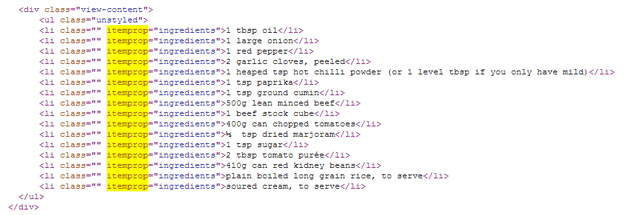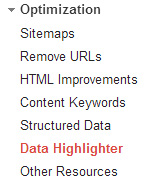Get hands-on with Webmaster Tools on our brand new advanced SEO Strategy Training course- the most up to date course on the market.
Google Webmaster Tools is an incredible tool for running health checks, monitoring your site's progress or uncovering the source of a problem. It's also an essential SEO tool.
If you're not familiar with Webmaster Tools or you haven't been keeping up with the latest changes & additions then we are here to help.
Learn about every feature of Google WMT and find out how you can use it for quick and long term SEO wins.

If you want to get hands-on with Webmaster Tools then come down to Brighton for our 1-day SEO course which will give you hands-on experience using WMT for SEO. We are always updating our SEO courses with the latest trends and best practices. If you're more interested in the analytics side of Webmaster Tools then we also recommend our 1 day Google Analytics or Advanced Google Analytics course.
I've thrown in a lot of tips along the way based on our experiences at Silicon Beach so you will have some good ideas to use Webmaster Tools to improve your site's performance.
Let's start from the top...
Craig Charley
13 Feb 2014
New SEO Course - Advanced SEO Training for Managers. The best SEO course you'll attend in 2014.
Could your business survive a manual or algorithmic Google penalty? That's the most important question for SEOs in 2014.
Over the past two years we have seen the number and frequency of algorithm updates and manual penalties increase as Google's Webmaster Spam team gets better at identifying tactics. This only looks set to continue over the next two years.
So how can you adjust your tactics to get results without risking everything?*

In this post I'm going to run through an SEO strategy that meets Google's Webmaster Guidelines, takes advantage of new and developing technologies and diversifies your traffic sources so that you're not so heavily reliant on Google search traffic.
If you're completely stuck with SEO or unsure you're going about it the right way then you can learn everything in this post on our hands-on, workshop-style SEO training courses.
I've included tips for content, link building, technical, offline, local, social and mobile considerations to create an overall picture of what search engines see as a 'good' site and help you give your SEO strategy a makeover for 2014.
Craig Charley
2 Dec 2013
New SEO Course - Advanced SEO Training for Managers?. Get hands-on with Structured Data Markup & Semantic Search.
Have you ever wondered where Google gets the information for search results like these?

This is an example of Rich Snippets generated by Structured Data.
Structured data markup helps search engines understand the context of a webpage through the use of HTML tags.
You identify an item (ie. recipe) and its properties (ingredients, preptime, nutrition etc.).
See which items and properties BBC Good Food has used with Google's Structured Data Testing Tool.
You can also check the page source to see how they have actually marked up the page:

Aaron Charlie
20 Feb 2014
Google have just announced an incredible new Data Highlighter in Webmaster Tools which allows you to mark up events on your site with simple point-and-click actions.
This is a life saver for webmasters who want to add structured data to their sites but don't have the skills to implement microdata, microformats or RDFa on their site.
For those unfamiliar with structured data markup, it is code added to a site, page or page element that makes content more understandable to search engines and other crawlers which is then translated into Rich Snippets- extra information shown in SERPs with your result. Previously, this would involve marking up elements individually using tags like schemas but now with Google's new Data Highlighter even those with no understanding of HTML can markup certain elements.

The idea behind Structured Data is to take the internet beyond just an archive of 'pages' and instead becomes an 'internet of things' - something that search engines are racing to be the best at. It's something Facebook does - recognising people, relationships, faces and interests. Google are on the right track with authors, publishers, knowledge graph and semantic search but they need the help of webmasters to take this a step further.
Structured data is vital for SEO - something we're looking to add to our SEO courses - not only does it help search engines understand your content but also gives you more visibility in SERPs. Likewise it's a must for content marketers - not so much for blog posts but for other content that needs clear labelling.
Currently the Data Highlighter tool just for events, but we believe that if this test is successful then other elements will be supported. Google made a similar move by making authorship markup (rel=author) easier to implement using email verification rather than tags.
How to Use Google Data Highlighter
The main point of Google's new Data Highlighter tool is that it is dead simple to use. It just requires a Webmaster Tools account and (of course) events on your website.
Disclaimer: If you're thinking "I love the sound of extra real estate in SERPs, but I don't have events,
I had better set some up!" then please stop right there. Tools like these only work if they're not abused.
If you must, think hard about what real event you could put on - it could be a talk, a free session
or a demonstration - just don't set up fake events.
Firstly, log in to your Webmaster Tools account, click on Optimization in
the sidebar and select Data Highlighter. Then click the big red 'Start Highlighting' button.
Craig Charley
13 Dec 2012